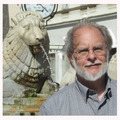FellowsDigital Humanities
Pam Conners (2015-2017)
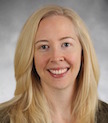 As a communication scholar, I am fascinated by the ways in which the digital realm shapes public discourse. In my courses, I encourage students to rhetorically analyze various digital platforms and to explore how the digital creates--and forecloses-- opportunities to advocate for change. In a January course about food access and nutrition, students will explore the rhetorical nature of food by examining how, as consumers, we make decisions on what constitutes nutritious eating. To understand how food communicates, we will analyze and use a variety of digital visualizations and tools, including graphs, storymaps, digital textual analysis, and videos.
As a communication scholar, I am fascinated by the ways in which the digital realm shapes public discourse. In my courses, I encourage students to rhetorically analyze various digital platforms and to explore how the digital creates--and forecloses-- opportunities to advocate for change. In a January course about food access and nutrition, students will explore the rhetorical nature of food by examining how, as consumers, we make decisions on what constitutes nutritious eating. To understand how food communicates, we will analyze and use a variety of digital visualizations and tools, including graphs, storymaps, digital textual analysis, and videos.
Denis Crnkovic (Co-Facilitator 2015-2016)
Although not yet called "digital humanities," my introduction to the interface between computing and literary analysis came in the early 1980s as I worked on my doctoral dissertation. The possibilities of integrating my formal textual studies using a computer promised to ease a lot of the drudgery associated with close reading. And so they have. Since then I have used digital means not only in my analytical research, bu - as the pixelated universe has expanded - in the classroom as well. The veritable explosion of digitalization of textual, visual, and audio material is a welcome development in the preservation, expansion and study of traditional liberal arts subjects, not least among them literature, history, language, linguistics, and so on. Equally welcome are the opportunities for innovative pedagogy: the on-line world of social media, instant news, and lightening fast communication offers possibilities for expanding the classroom beyond its four walls that were barely imaginable a generation ago. The future of the various Humanities, so often discussed these days, is unavoidably tied to the vast concept of the "digital humanities," and I, for one, hope to be a part of what that congregation of ideas will bring.
Lisa Dembouski (2017-2018)
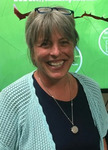 As an educator and Education Department faculty member, I can say that I’ve been an enthusiastic user of learning and educational technologies for most of my teaching career (~20 years now, depending on what you count as “teaching”). In addition to using technology as a tool to enhance teaching and learning, I also find that digital efforts are typically engaging and fun for all of us in the learning space, my students as well as me. Similarly, I have another layer I’m always considering in my pedagogy, which is that I am also preparing new teachers to use these same skills in their own classrooms. So modeling, thinking about our work on multiple levels, and exploring ways digital tools may not be the best medium for learning are all important to me, too. I’m adding EDU 241 (Educational Technology) to my teaching load beginning in the 2017-18 academic year, plus will inflect our J-term course Island Schooling with key components that will be digitally-based. Thus, I am exploring multiple means for digital learning in the immediate future; I am excited to keep this focus going in my work!
As an educator and Education Department faculty member, I can say that I’ve been an enthusiastic user of learning and educational technologies for most of my teaching career (~20 years now, depending on what you count as “teaching”). In addition to using technology as a tool to enhance teaching and learning, I also find that digital efforts are typically engaging and fun for all of us in the learning space, my students as well as me. Similarly, I have another layer I’m always considering in my pedagogy, which is that I am also preparing new teachers to use these same skills in their own classrooms. So modeling, thinking about our work on multiple levels, and exploring ways digital tools may not be the best medium for learning are all important to me, too. I’m adding EDU 241 (Educational Technology) to my teaching load beginning in the 2017-18 academic year, plus will inflect our J-term course Island Schooling with key components that will be digitally-based. Thus, I am exploring multiple means for digital learning in the immediate future; I am excited to keep this focus going in my work!
Eric Dugdale (Co-Facilitator 2016-2017)
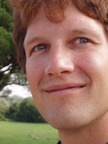 I have enjoyed being involved in a number of digitally driven ventures that advance the study of the ancient world and make it accessible to a broader public. I was a project member for the Interactive Ancient Mediterranean, an online mapping project. I created the Pandora Project, a searchable online repository of classics-related images. Along with a research group of Gustavus undergraduates I am participating in the Homer Multitext Project, a multi-institutional initiative, hosted by Harvard University's Center for Hellenic Studies, to publish the first digital edition of the earliest surviving manuscripts of Homer's Iliad. I am spearheading the Möbius Initiative, which showcases and supports projects in which Gustavus faculty and students are collaborating across disciplinary boundaries.
I have enjoyed being involved in a number of digitally driven ventures that advance the study of the ancient world and make it accessible to a broader public. I was a project member for the Interactive Ancient Mediterranean, an online mapping project. I created the Pandora Project, a searchable online repository of classics-related images. Along with a research group of Gustavus undergraduates I am participating in the Homer Multitext Project, a multi-institutional initiative, hosted by Harvard University's Center for Hellenic Studies, to publish the first digital edition of the earliest surviving manuscripts of Homer's Iliad. I am spearheading the Möbius Initiative, which showcases and supports projects in which Gustavus faculty and students are collaborating across disciplinary boundaries.
Seán Easton (2016-2017)
As a professor in the Classics department and the Peace Studies program, I use digital tools in my courses for two main reasons. They create new student experiences of the Ancient Greek and Roman worlds and facilitate deeper student explorations of the issues of peace, justice, and conflict in literature and film.
Jeff Jenson (2015-2017)
 Digital humanities (DH) is a relatively recent buzzword, but foundationally, DH is timeless. It concerns making sense of information via technology whether it’s cuneiform tablets, pens and pencils, the printing press and typewriters, databases, or any number of current and future Internet-based tools. As an educator, I don’t view DH as being different than traditional learning. It’s not only another way of learning; it’s a way to more intentionally interact with, present, and ultimately gain new knowledge. As an archivist, I work with historical records and help users interpret documents often created for purposes other than what they are researching. My work at the intersection of technology and primary sources helps researchers understand and access historical materials and ultimately allows for the creation of new knowledge.
Digital humanities (DH) is a relatively recent buzzword, but foundationally, DH is timeless. It concerns making sense of information via technology whether it’s cuneiform tablets, pens and pencils, the printing press and typewriters, databases, or any number of current and future Internet-based tools. As an educator, I don’t view DH as being different than traditional learning. It’s not only another way of learning; it’s a way to more intentionally interact with, present, and ultimately gain new knowledge. As an archivist, I work with historical records and help users interpret documents often created for purposes other than what they are researching. My work at the intersection of technology and primary sources helps researchers understand and access historical materials and ultimately allows for the creation of new knowledge.
Justin Knoepfel (2016-2018)
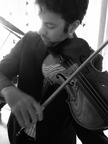 As a musician, the digital realm is an exciting and nervous realm of collaboration and integration. I teach a course on “Musical Understanding,” where in this course students gain an understanding of the nature and place of music in culture by analyzing its historical context, listening to music critically, attending musical productions, and participating in musical performance. What intrigues me most about the digital humanities is the electronic resurrection of individuals and genres of Western art music as if they were living today. I am excited to be utilizing digital tools in my pedagogy to enhance my teaching in an interactive and engaging way.
As a musician, the digital realm is an exciting and nervous realm of collaboration and integration. I teach a course on “Musical Understanding,” where in this course students gain an understanding of the nature and place of music in culture by analyzing its historical context, listening to music critically, attending musical productions, and participating in musical performance. What intrigues me most about the digital humanities is the electronic resurrection of individuals and genres of Western art music as if they were living today. I am excited to be utilizing digital tools in my pedagogy to enhance my teaching in an interactive and engaging way.
Glenn Kranking (Co-Facilitator 2015-2018, Fellow 2016-2017)
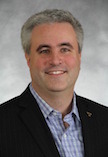 I was first introduced to the digital humanities in graduate school, and have attempted to incorporate digital aspects into a number of my courses, either through the use of technology for communication (having students regularly use Twitter), or through digital projects replacing traditional research papers. I am excited about how we can use technology both in the research and in the presentation of our findings, which can allow us to bring new insights and new approaches to our fields. My January term course “History Bytes,” first offered in January 2010, engages students in the evaluation of digital resources including digital archives, digital projects, and even historically-themed video games.
I was first introduced to the digital humanities in graduate school, and have attempted to incorporate digital aspects into a number of my courses, either through the use of technology for communication (having students regularly use Twitter), or through digital projects replacing traditional research papers. I am excited about how we can use technology both in the research and in the presentation of our findings, which can allow us to bring new insights and new approaches to our fields. My January term course “History Bytes,” first offered in January 2010, engages students in the evaluation of digital resources including digital archives, digital projects, and even historically-themed video games.
Baker Lawley (Co-Facilitator 2017-2018, Fellow 2015-2016, 2017-2018)
Before coming to Gustavus, I worked in publishing for eight years, and I'm fascinated with the rapid changes and possibilities the digital medium brings to the publishing world. I'm excited to share my experience with e-books, podcasts, websites, and online journals in this course. We'll be creating a new, nationally-distributed literary magazine, with Gustie student editors practicing the elements of professional publishing!
Micah Maatman (2015-2016)
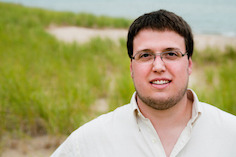 I am interested in the Digital Humanities because computers have always been a cornerstone of how I work and learn. As a dyslexic member of the faculty, images have always spoken louder to me than words were ever able, so I built a career around the use of images as communication. From the first time I played with 3D modeling software and interacted with virtual images and objects, I was knew that computers opened new doors of communication for my imagery based brain. In the last ten years, our society has also moved to favor computers as the predominant mode of communication. Now is an important time for artists and humanists to embrace using the computer as a communication device for our scholarly pursuits because it means we are able to explore new ways of understanding by incorporating technology into our scholarship. And we get to do that while giving access to more people, literally more people over the web, but also those that process better outside of the exclusivity of text. More modes of communication, bigger audience…what more could the artist/humanist ask for…
I am interested in the Digital Humanities because computers have always been a cornerstone of how I work and learn. As a dyslexic member of the faculty, images have always spoken louder to me than words were ever able, so I built a career around the use of images as communication. From the first time I played with 3D modeling software and interacted with virtual images and objects, I was knew that computers opened new doors of communication for my imagery based brain. In the last ten years, our society has also moved to favor computers as the predominant mode of communication. Now is an important time for artists and humanists to embrace using the computer as a communication device for our scholarly pursuits because it means we are able to explore new ways of understanding by incorporating technology into our scholarship. And we get to do that while giving access to more people, literally more people over the web, but also those that process better outside of the exclusivity of text. More modes of communication, bigger audience…what more could the artist/humanist ask for…
Carlos Mejia (2015-2018)
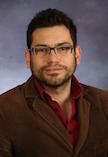 The digital canvas has been a part of both my teaching and my research as a Spanish language professor and a Latin Americanist. My experience gathering data for an on-line database about the references (to places, names, and works) in Jorge Luis Borges’s work was key to my understanding of this fundamental Latin American author. Also, I use the digital environment to foster a collective production of knowledge that spans out of the classroom and prompts students to produce digital texts for a wider audience. I am particularly interested in: Exploring how the digital can be used to visualize information and/or personal reflection; what such visualization can do to enrich the learning process; and how the use of humanities projects in this way can foster a critical attitude towards the digital, beyond its consumption.
The digital canvas has been a part of both my teaching and my research as a Spanish language professor and a Latin Americanist. My experience gathering data for an on-line database about the references (to places, names, and works) in Jorge Luis Borges’s work was key to my understanding of this fundamental Latin American author. Also, I use the digital environment to foster a collective production of knowledge that spans out of the classroom and prompts students to produce digital texts for a wider audience. I am particularly interested in: Exploring how the digital can be used to visualize information and/or personal reflection; what such visualization can do to enrich the learning process; and how the use of humanities projects in this way can foster a critical attitude towards the digital, beyond its consumption.
So Young Park (2016-2017)
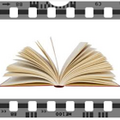 My field of specialization is Victorian studies, so I love reading complicated, multiform narratives. I’m co-teaching a course on Korean Drama with Lianying Shan (MLC), where students will analyze and write about popular Korean serial dramas and their transnational contexts. Students will use digital methodologies to explore and understand K-drama’s recent history and cultural influence. Episodes will be viewed in English. All students who are interested in popular culture and who would like an introduction to digital humanities are welcome.
My field of specialization is Victorian studies, so I love reading complicated, multiform narratives. I’m co-teaching a course on Korean Drama with Lianying Shan (MLC), where students will analyze and write about popular Korean serial dramas and their transnational contexts. Students will use digital methodologies to explore and understand K-drama’s recent history and cultural influence. Episodes will be viewed in English. All students who are interested in popular culture and who would like an introduction to digital humanities are welcome.
Deb Pitton (2017-2018)
 Deb is a Professor of Education and sees the possibilities for Digital Humanities to enhance learning in the K-12 classrooms. Developing digital humanities projects within the schools where our students will be working in January will push the Gustavus students’ learning regarding technology as a learning tool, as well as provide an immersion in digital learning for their pupils. The critical thinking and problems solving needed to create these digital projects, while facilitated by the Gustavus students, will also be a part of the work completed by the K-12 classroom pupils. Pupils in the St. Maartin schools will present these digital projects during a school wide celebration.
Deb is a Professor of Education and sees the possibilities for Digital Humanities to enhance learning in the K-12 classrooms. Developing digital humanities projects within the schools where our students will be working in January will push the Gustavus students’ learning regarding technology as a learning tool, as well as provide an immersion in digital learning for their pupils. The critical thinking and problems solving needed to create these digital projects, while facilitated by the Gustavus students, will also be a part of the work completed by the K-12 classroom pupils. Pupils in the St. Maartin schools will present these digital projects during a school wide celebration.
Amy Seham (2015-2016)
 Amy Seham teaches in the Department of Theatre and Dance, GWSS and Peace Studies. Her areas of focus include social justice performance, improvisation, directing, devised theatre, playwriting, and performance theory. She directs plays and musicals (including several original pieces) and is the advisor for I Am We Are, the social justice theatre troupe in residence at the college. Her book, Whose Improv Is It, Anyway?, discusses the development of Chicago-style improv-comedy, and the interplay of race, gender and power on the improv-comedy stage. She has given her workshop on “Resisting Stereotypes in Improv” to academic and professional groups throughout North America, including Second City, Toronto, Fringe Benefits, Los Angeles, and the Funny Women Festival in Minneapolis. Amy lives in St. Peter, MN with her twelve-year-old daughter, Miranda.
Amy Seham teaches in the Department of Theatre and Dance, GWSS and Peace Studies. Her areas of focus include social justice performance, improvisation, directing, devised theatre, playwriting, and performance theory. She directs plays and musicals (including several original pieces) and is the advisor for I Am We Are, the social justice theatre troupe in residence at the college. Her book, Whose Improv Is It, Anyway?, discusses the development of Chicago-style improv-comedy, and the interplay of race, gender and power on the improv-comedy stage. She has given her workshop on “Resisting Stereotypes in Improv” to academic and professional groups throughout North America, including Second City, Toronto, Fringe Benefits, Los Angeles, and the Funny Women Festival in Minneapolis. Amy lives in St. Peter, MN with her twelve-year-old daughter, Miranda.
Lianying Shan (2016-2017)
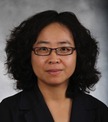 My field of study is Japanese literature and East Asian literatures and cultures. I am fascinated by the great impact that digital technologies are having on cultural exchanges across the world. In the Korean drama course that I am co-teaching with So Young Park, students will use digital technologies to watch Korean drama and research its reception in East Asia and the U.S. We will explore digital humanities as an important part of studying culture and cultural differences.
My field of study is Japanese literature and East Asian literatures and cultures. I am fascinated by the great impact that digital technologies are having on cultural exchanges across the world. In the Korean drama course that I am co-teaching with So Young Park, students will use digital technologies to watch Korean drama and research its reception in East Asia and the U.S. We will explore digital humanities as an important part of studying culture and cultural differences.
Sarah Wolter (2016-2017)
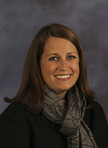 My area of communication studies is Critical Media Studies, so digital humanities is naturally of great interest to me. I am most interested in how digital humanities can help students become more media literate by understanding and critiquing the largely privately-owned U.S. media system. Ever-changing communication technologies shape what we know and how we know it in U.S. culture, and many scholars argue media are the foremost cultural institution educating and socializing individuals. Knowing who controls the information we receive and knowing how that shapes the information we gather for making important decisions in our lives fosters a more democratic citizenry.
My area of communication studies is Critical Media Studies, so digital humanities is naturally of great interest to me. I am most interested in how digital humanities can help students become more media literate by understanding and critiquing the largely privately-owned U.S. media system. Ever-changing communication technologies shape what we know and how we know it in U.S. culture, and many scholars argue media are the foremost cultural institution educating and socializing individuals. Knowing who controls the information we receive and knowing how that shapes the information we gather for making important decisions in our lives fosters a more democratic citizenry.
